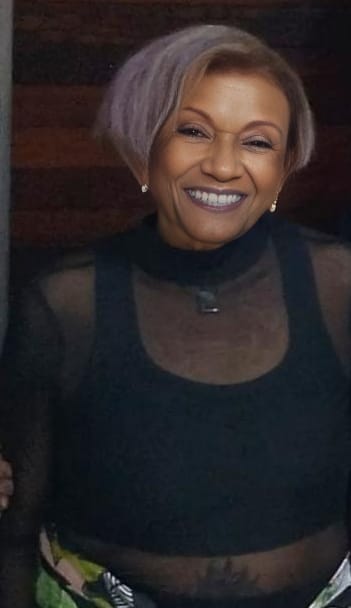In Latin America, there is a widening gap between younger women and those past menopause, an issue that is largely unaddressed in policy or advocacy. “The gap between reproductive women and those who are post-menopause is a crisis that needs action,” she warns.
The invisible generation: older women left behind
When asked whether older women’s rights are being promoted and protected, Edilia’s response is unequivocal: “No, not at all.”
Older women remain invisible, sidelined in discussions about gender equality and largely excluded from decision-making spaces. “They are the shameful side of global violence against women,” she says. The institutions created to address gender inequality have failed to include older women’s voices in meaningful ways. “Their voices are in storage, locked away in silence. They hold no political power and have no seat at the table when public policies are shaped.”
The biggest barrier, she argues, is not just political resistance but also women themselves. “Many women are reluctant to recognise how much work remains to be done. The lack of solidarity across generations weakens our collective power.”
Have we lost more than we gained?
Reflecting on the Beijing Declaration and its legacy, Edilia does not shy away from hard truths. “When I hear women leaders speak about the loss of rights, about how rights don’t truly exist if you are not able to maintain them, I realise how much worse things are today than 30 years ago.”
She challenges the notion that institutional structures alone can bring change. Without real political will and grassroots mobilisation, she believes the past three decades will be remembered more for lost momentum than for progress.
Strength across generations
Despite her sharp criticisms, Edilia finds hope in the way women of all ages can work together. A lifelong athlete, she sees sports as a metaphor for the kind of solidarity needed to drive change. “Practicing athletics for more than 30 years at a high level of competition proves that younger and older women can and must work together to advance non-discriminatory policies.”
Yet, she is not optimistic. “Are things better than 30 years ago? Not at all.”
A message for the future
As the world marks 30 years since Beijing, Edilia’s message is both a warning and a call to action. “Everything is possible for women – at any age – if they assume their full humanity.”
For her, the fight is far from over, and the hardest battles may still lie ahead.
 Dr. Edilia Camargo is a Panamanian philosopher, educator, and international civil servant with a distinguished career in academia, diplomacy, and human rights advocacy. She has served as a professor of philosophy and aesthetics at the University of Panama and held key roles at UNESCO in Paris and New York, focusing on education, culture, and social policies. As President of the Latin American and Caribbean Network for Older Persons, she works across 17 countries to promote the rights of older people and monitor public policies.
Dr. Edilia Camargo is a Panamanian philosopher, educator, and international civil servant with a distinguished career in academia, diplomacy, and human rights advocacy. She has served as a professor of philosophy and aesthetics at the University of Panama and held key roles at UNESCO in Paris and New York, focusing on education, culture, and social policies. As President of the Latin American and Caribbean Network for Older Persons, she works across 17 countries to promote the rights of older people and monitor public policies.
A prolific writer, Edilia has authored works on philosophy, human rights, and culture. She is also an accomplished master athlete, earning a gold medal in the 800m race at the 2024 World Masters Athletics Championships. Her life’s work reflects a deep commitment to justice, education, and intergenerational solidarity.

 Dr. Edilia Camargo is a Panamanian philosopher, educator, and international civil servant with a distinguished career in academia, diplomacy, and human rights advocacy. She has served as a professor of philosophy and aesthetics at the University of Panama and held key roles at UNESCO in Paris and New York, focusing on education, culture, and social policies. As President of the Latin American and Caribbean Network for Older Persons, she works across 17 countries to promote the rights of older people and monitor public policies.
Dr. Edilia Camargo is a Panamanian philosopher, educator, and international civil servant with a distinguished career in academia, diplomacy, and human rights advocacy. She has served as a professor of philosophy and aesthetics at the University of Panama and held key roles at UNESCO in Paris and New York, focusing on education, culture, and social policies. As President of the Latin American and Caribbean Network for Older Persons, she works across 17 countries to promote the rights of older people and monitor public policies.